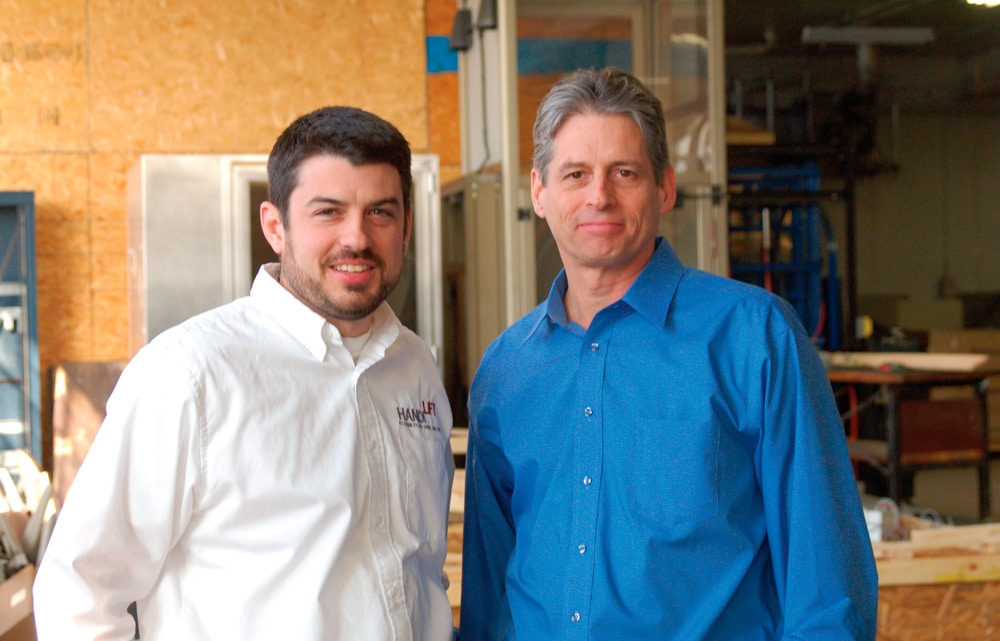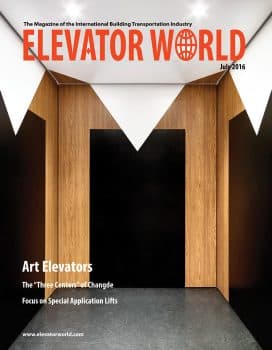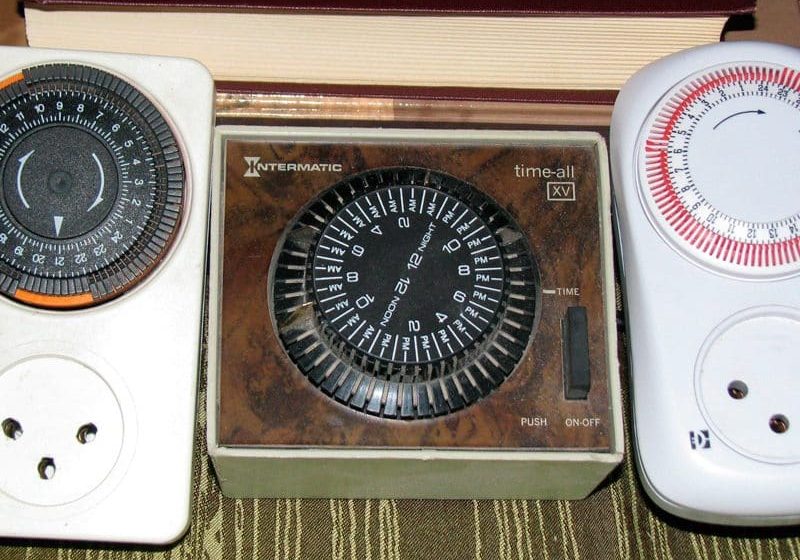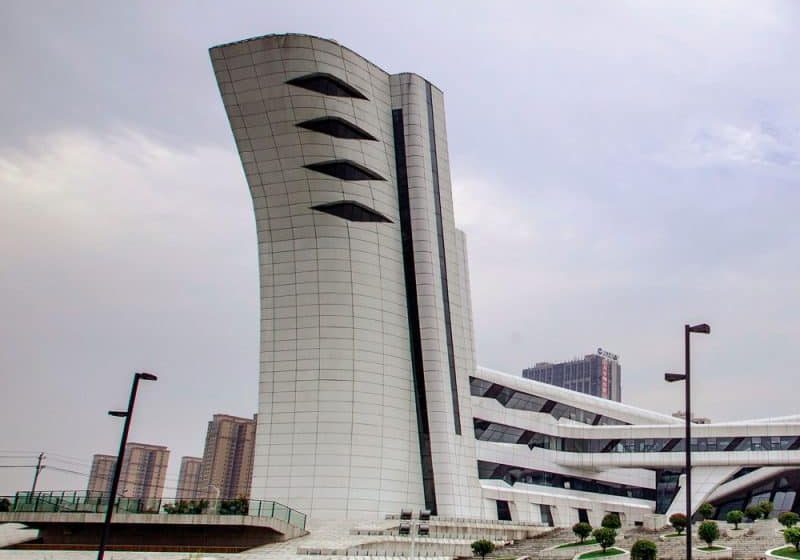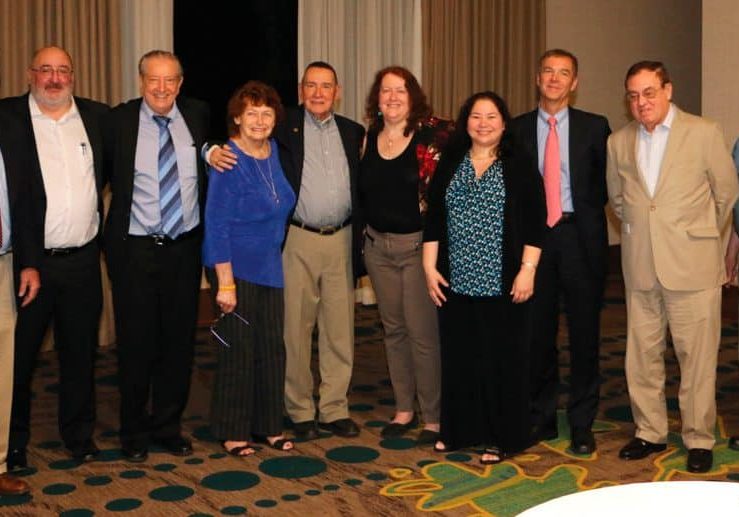Handi-Lift, Inc., headquartered in Carlstadt, New Jersey, has received several ELEVATOR WORLD Project of the Year awards for its custom wheelchair lifts. Projects honored over the years include systems in the Hamilton Grange Memorial (Alexander Hamilton’s only known home) (EW, January 2012) and the Lincoln Center Theater’s Mitzi E. Newhouse Theater (EW, January 2016), both in New York City (NYC). In 2014, Handi-Lift was presented with the Americans with Disabilities Act (ADA) Sapolin Award, recognizing the company’s contributions to providing accessibility, by NYC Mayor Bill de Blasio.
Handi-Lift’s recognitions are well earned and represent a strategic rebuilding after some very tough times for the company, founded in 1975 in the home of Donald “Don” and Daphne Boydston in Mahwah, New Jersey. Don Boydston learned the elevator trade from his father-in-law, who worked for Mohawk Elevator in upstate New York, selling Cheney Wecolator stairway chairlifts going back to the 1950s as a sideline. “My dad thought it would make a neat little business if you focused on it,” Don’s son, Doug Boydston, states. So, Don Boydston decided to strike out on his own, reaching an agreement with Cheney to focus on Wecolator sales. Doug Boydston recalls:
“We stayed with Cheney as they grew and added other products. One interesting thing is, when they came out with a commercial vertical platform lift, they asked us if they could name the product ‘Handi-Lift.’ Of course, we agreed, and that helped us brand Cheney and ourselves in our territory for many years.”
Doug Boydston graduated from college with a Biblical Literature degree in 1976, married his college sweetheart, Barbara, and went to work with his parents for a few years. He and Barbara then moved to Pittsburgh for him to go to graduate school. With two children and a wife to support, Doug Boydston dropped out and took up roofing full time in Pittsburgh, taking over the company from his boss when the boss had a heart attack. In 1987, Don Boydston talked his son into returning to Handi-Lift.
By that time, Don Boydston had gotten into commercial platform lifts and business was humming along, thanks primarily to federal laws requiring access for those with limited mobility in places such as schools and other public facilities (different from the ADA, enacted in 1990). Such facilities typically received federal grant money and spent it with companies like Handi-Lift. Doug Boydston states:
“Schools were the biggest market then. Sixty to 70% of our work was for elementary schools, universities and high schools. This was also before the ADA, so many of our customers were people who simply wanted to [provide better access], rather than being forced to do it. Churches, for example, would be concerned about their seniors and put in lifts for them, and private corporations wanted to help their disabled employees.”
Only two years after Doug Boydston returned to the business, tragedy struck. His father suffered a brain aneurism that prevented him from working, and Daphne Boydston had to stay home to care for her husband. On top of that, Handi-Lift’s head of residential sales Mel Kruis passed away suddenly, and its lead installation mechanic left. “So, I lost four of 12 key players in one year,” Doug Boydston says.
It was 1996 before the company finally started to grow again, but then came the 9/11 terrorist attacks in 2001 and the financial crisis of 2007-2008. Doug Boydston recalls payroll shrinking from 70 to 35 from 2006-2008. “We cut everywhere we could, down to the bare bones, and it just was not fun to come to work anymore,” he recalls.
So, he turned to his son, James Boydston, who at the time was Construction Sales manager. Doug Boydston states:
“I asked him, ‘Are you in or are you out? I need to know, because I’m making decisions about the future.’ By 2010, he decided he wanted to go all in with me and figure out how to right the ship. We cut the company in half, with him taking the service side, and me taking the construction side. We divided all the employees, and agreed that if I fail, I fail; and if you fail, you fail. Since then, [James Boydston] has done a wonderful job building the service division.”
Some serendipity came into play in the growth of the service division. In 2009, NYC implemented a law privatizing periodic elevator testing, including platform lifts for the first time. “That really helped save the company, and the service department got really strong,” Doug Boydston observes.
Wanting to avoid the chaos that ensued after his father suffered the aneurism, Doug Boydston arranged several years ago to have the company (as one entity) transfer over to James, a process that wrapped up in 2014. “So, I essentially work for him now,” Doug Boydston, who is current head of Special Projects, jokes.
Handi-Lift has nearly 50 employees and for 15 years has been headquartered in a 20,000-sq.-ft. office/warehouse. It primarily serves the NYC metro area and New Jersey but has performed custom work in cities such as Washington, D.C.; Boston; and Chicago. In May, Doug Boydston was onsite in San Francisco overseeing the installation of a lift designed for a new Apple store.
Commercial wheelchair lifts account for 70-80% of business these days, with the remainder being stairlifts, home elevators and limited-use/limited-application elevators. Handi-Lift’s key vendors include Garaventa and Stannah, and it partners with various companies on projects across the country. For the San Francisco Apple store, for example, Handi-Lift worked with Pacific Access Elevator. It was the second lift the company designed for Apple, the first being for a store on Prince Street in NYC.
James Boydston observes such repeat business is the result of high-quality work. “High-value performance is the best way for us to win work,” he notes, continuing:
“We have been raising the bar every day for the last 40 years on ourselves and our performance, and keep a good reputation in the industry. We take on challenges others don’t, and we advise our customers with the information they need, when they need it.”
Handi-Lift makes it a point to attend the annual National Association of Elevator Contractors and Elevator Conference of New York trade shows. Doug Boydston served as NAEC president in 2005, which he describes as “a great honor.” Continuing Handi-Lift’s involvement with NAEC, James Boydston is on its Education Committee.
The company has become a go-to source for wheelchair lifts in historic landmarks and high-end shops. Besides fitting seamlessly into their surroundings, the lifts are often works of art in and of themselves. Doug Boydston describes a job at The Morgan Library & Museum in NYC that involved two lifts:
“One has a piston underneath that pulls a matching stone out of the pit and carries the design of the railings through the upper gate. The other one was a standard drive with the lift tower buried in the millwork and glass entrances. The lower door is powered with a power operator in the floor. This job has resulted in a lot of architects calling.”
Handi-Lift is focused on the U.S. but has received calls from as far away as Qatar. No matter where they are working, the Boydstons continue to provide code-compliant, safe, easy-to-use accessibility lifts. They intend to stick to their mission, which is “to inspire confidence in our accessibility solutions to honor the God-given dignity of all.”
Get more of Elevator World. Sign up for our free e-newsletter.
